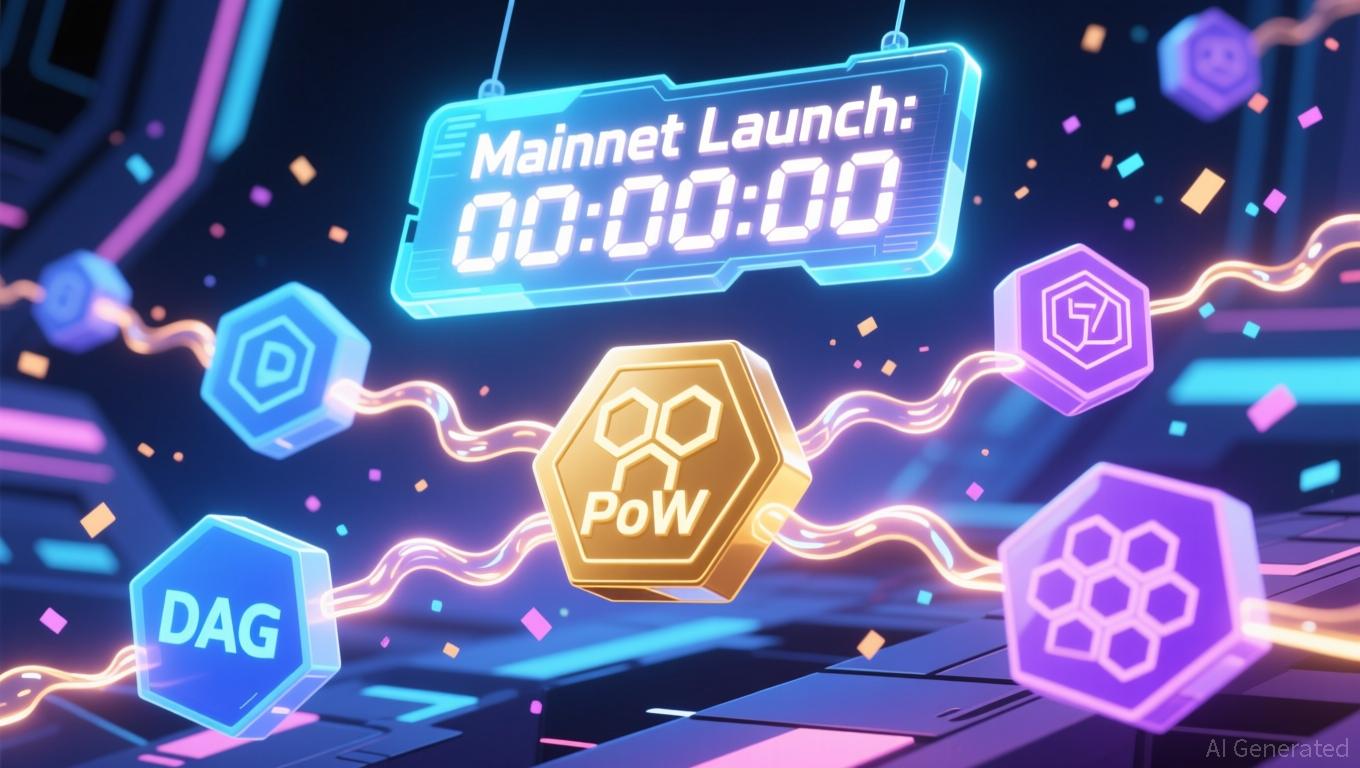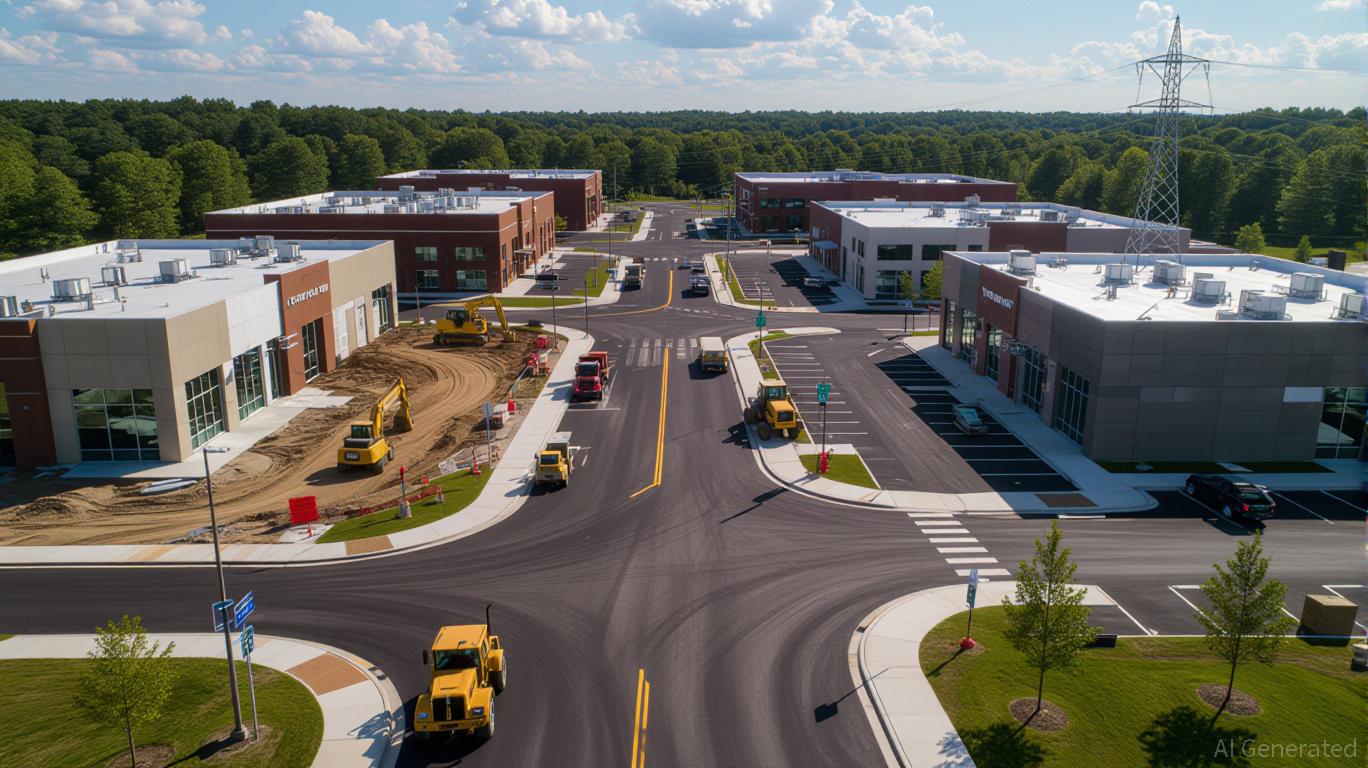XRP News Today: IMF Cautions That Tokenized Markets Could Face Collapse Without International Cooperation
- IMF warns tokenized markets risk destabilizing flash crashes due to rapid growth and interconnected smart contracts. - XRP highlighted as potential cross-border payment solution but not endorsed, alongside Stellar and Bitcoin-Lightning hybrid models. - Global regulators intensify oversight of tokenized assets, with ESMA, SEC, and central banks addressing governance and liquidity risks. - IMF stresses urgent need for coordinated policy frameworks to prevent fragmentation and systemic vulnerabilities in ev
IMF Raises Concerns Over Rapid Expansion of Tokenized Financial Markets
The International Monetary Fund (IMF) has issued a warning regarding the potential dangers linked to the swift development of tokenized financial markets. According to a recent video and report, the IMF acknowledged that tokenization could revolutionize financial transactions by making them faster and more cost-effective through the removal of intermediaries. However, the organization also cautioned that these same efficiencies might heighten systemic risks, potentially leading to sudden and destabilizing market crashes similar to the 2010 flash crash. The IMF pointed out that the intricate connections between smart contracts and automated settlement mechanisms could, if disrupted, set off a chain reaction of failures throughout the financial system.

Interest in tokenized assets, including cryptocurrencies such as XRP, has been growing. The IMF’s 2023 report highlighted XRP as a possible tool for facilitating cross-border payments, listing it alongside other models like the open-source Stellar framework and a hybrid approach combining Bitcoin with the Lightning Network. XRP was recognized for its potential to streamline settlements by bypassing conventional credit networks, thereby lowering costs and reducing transaction times. Nonetheless, the IMF did not officially endorse XRP, instead presenting it as one of several options for integration into a future digital marketplace.
Envisioning a Global Tokenized Marketplace
The IMF outlined a vision for a digital marketplace where tokenized currencies could be exchanged internationally with ease, supported by market makers who would handle currency swaps and provide liquidity. While this model could broaden access to global financial services, the IMF warned that competition among different platforms might fragment the market, diminishing liquidity and eroding the cost benefits promised by tokenization. The organization emphasized the importance of interoperability and open standards to avoid the creation of isolated financial ecosystems. Citing historical precedents such as the Bretton Woods system and the end of the gold standard, the IMF noted that governments have consistently intervened during major shifts in the monetary landscape.
Regulatory Response Intensifies
Regulators around the world are increasing their scrutiny of tokenized assets. The European Securities and Markets Authority (ESMA) has called for enhanced investor protections to keep pace with technological progress, while the U.S. Securities and Exchange Commission (SEC) and other international agencies are working to clarify regulatory frameworks for tokenized real-world assets (RWAs). Notable initiatives, such as Singapore’s tokenized government bonds and the European Central Bank’s blockchain experiments, reflect the growing institutional engagement in this sector. At the same time, the World Federation of Exchanges has advocated for tighter regulation of tokenized equities, which often resemble traditional stocks but may lack comparable safeguards.
Balancing Innovation and Stability
The IMF’s cautionary statements come as tokenized markets reach a critical stage of development. Recent milestones, including the approval of spot exchange-traded funds (ETFs) for cryptocurrencies like Dogecoin and Chainlink, indicate a surge in institutional participation. Despite these advancements, the IMF continues to stress the importance of managing systemic risks, warning that while tokenization holds the potential to transform global finance, a lack of coordinated oversight could introduce new vulnerabilities. The organization urges policymakers to collaborate in order to maintain stability and foster trust as the financial sector evolves.
Disclaimer: The content of this article solely reflects the author's opinion and does not represent the platform in any capacity. This article is not intended to serve as a reference for making investment decisions.
You may also like
Solana News Today: Avail's Nexus Mainnet: A Borderless Blockchain Ecosystem
- Avail launches Nexus Mainnet, a cross-chain infrastructure unifying liquidity across Ethereum , Solana , and EVM-compatible chains. - The platform uses intent-solver architecture and Avail DA verification to replace bridges, enabling seamless asset movement and shared liquidity. - Integrations with major chains and partners like Lens Protocol aim to streamline DeFi and trading, while $AVAIL token coordinates cross-chain transactions. - With Infinity Blocks targeting 10 GB blocks, Nexus addresses liquidit

Cardano News Today: ETFs Turn to Alternative Coins While ADA Stumbles and XLM Gains Momentum with ISO Compliance
- Franklin ETF expands holdings to include ADA , XLM, XRP , and others, reflecting institutional altcoin diversification driven by ISO 20022 compliance and SEC-approved rules. - Cardano faces short-term bearish pressure with 31% monthly decline, contrasting Stellar's bullish 2025/2030 price projections ($1.29–$6.19) fueled by RWA and cross-border payment demand. - ISO 20022 adoption (97% payment instructions) positions ADA/XLM as bridges between DeFi and traditional finance, with Ripple's ILP enhancing XLM
AI Crypto Faces a Pivotal Turn: Regulatory Demands Surpass Aspirations in 2025

The Influence of Targeted Infrastructure Funding on Property and Industrial Growth
- New York's FAST NY program allocates $9.8M to Webster for infrastructure upgrades, targeting industrial and real estate growth. - The grant funds road realignment, sewer upgrades, and electrical planning to attract $650M private investments like fairlife® dairy facility. - Webster's 10.1% residential property value surge and 300+ acres of revitalized land highlight infrastructure-driven economic multipliers. - Statewide, FAST NY has allocated $283M across 37 projects, transforming coal plants and brownfi
